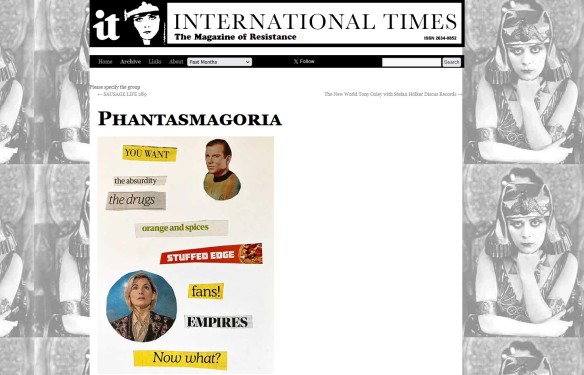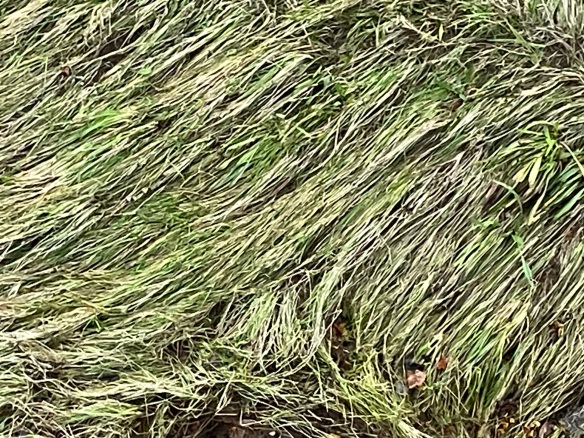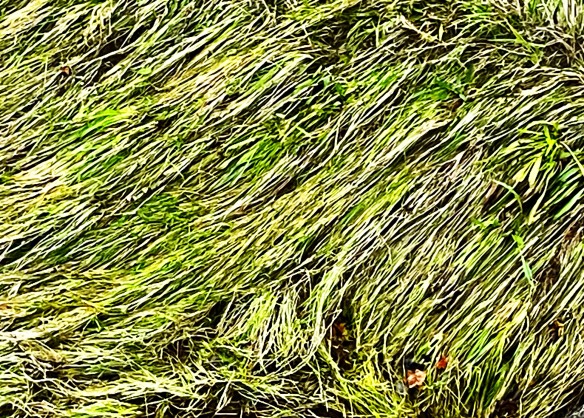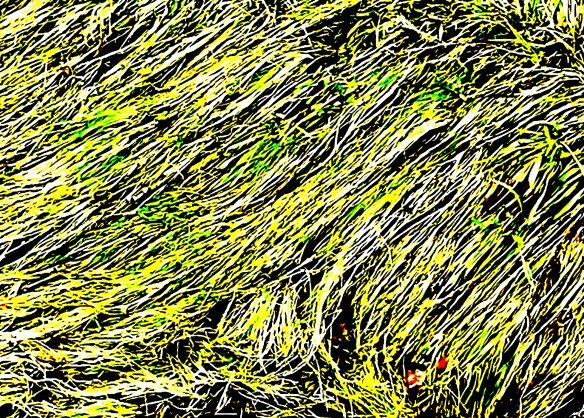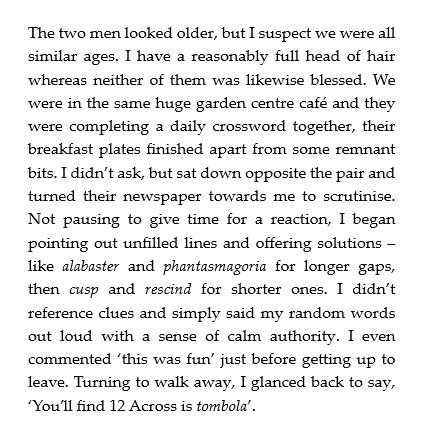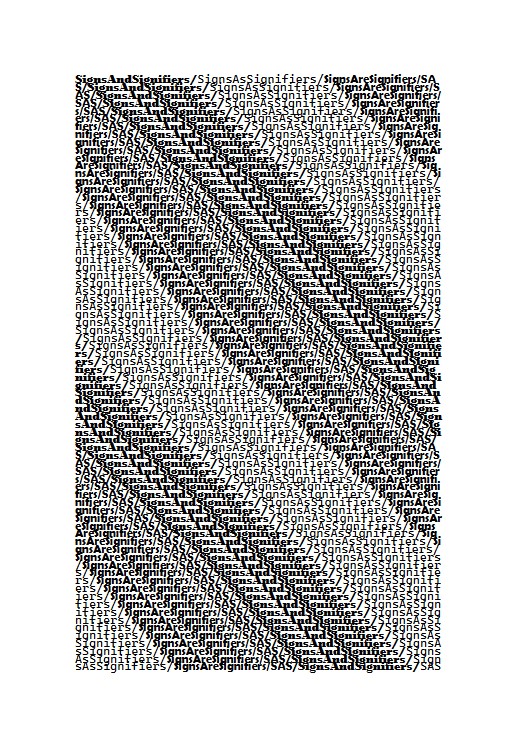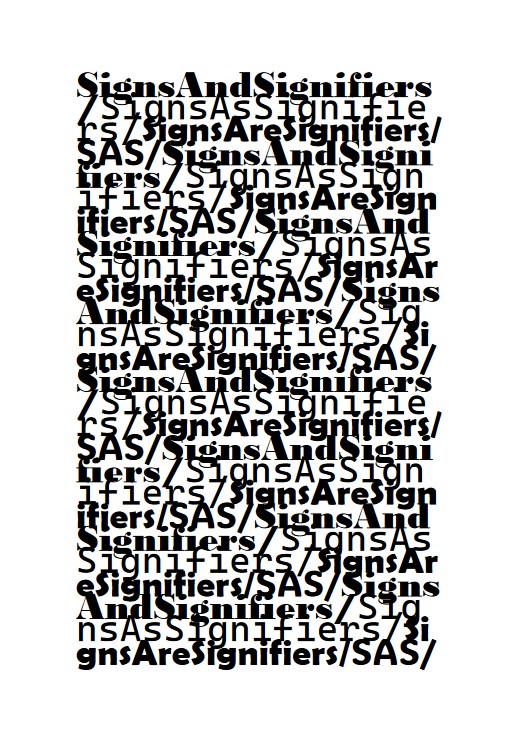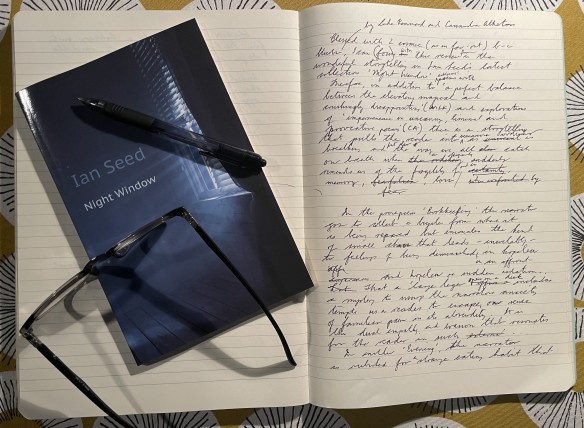
Reading the prose poems in Ian Seed’s latest collection Night Window is to enter once again those signature everyday but often surreal and absurd scenarios from which his narrators’ and (by association) our common human frailties emerge. The storytelling mixes mystery and magic with the ordinary so that pulled in we are both amazed and appalled at finding ourselves sharing the uncertainties.
In the prose poem Bookkeeping, the narrator goes to collect a bicycle from where it is being repaired but encounters a kind of small chaos that leads to feelings of being diminished. Facing an affront, the narrator becomes helpless and suddenly isolated, unable to cope with the jeopardy created in the specific storyline which will also resonate for the reader as a similar kind of experience in their life, real or easily imagined. A ‘large ledger open’ on a desk reveals a mystery to usurp the narrator’s anxiety and tempts us as readers to escape our own sense of fear/pain in the absurdity of its unknowing.
Evening presents a quieter scenario for its threat to be revealed, and the storyline deals with familiarity and change colliding to its comically surreal end. There is an enforced banishment/removal as a ridiculous outcome for the narrator having been complacent about an unwelcome behaviour – a manner that we presume was formerly accepted as ordinary and familiar.
In Geometry, a lovelorn tale is recounted briskly but accounts for ‘a few years’ with a significant change in circumstances. A romantic, idyllic setting is placed against the self-conscious jeopardy of a ‘bald patch on my crown’ getting burnt in the sun, and in this we sense both the ludicrous nature of concern and the poignant nature of loss.
There are times when the storytelling takes more time to set up and plot the anxiety of a moment so that as readers we walk along with this relatively longer journey. That is the case with Luggage, but the ruse is to lead us to the bathos of its revelation. The reality of uncertainty and mistake is how banal it can be; how commonly this occurs to make it so.
There are two wonderfully insightful, illuminating back-cover blurbs from Luke Kennard and Casandra Atherton for Seed’s poetry collection. With such precise understanding and appreciation of his writing, both thematically and stylistically, I cannot as a reviewer hope or need to add anything that would expand on their fine overviews. I will, however, quote two brief excerpts to highlight the shared, persuasive urge to readers: ‘a perfect balance between the elevating magical and crushingly disappointing’ (LK), and ‘impermanence in uncanny, liminal and provocative poems’ (CA).
If you know Ian Seed’s work well you will thoroughly enjoy continuing the journey; if you are new to this, you will thoroughly enjoy the discovery. You can read more details and purchase the book here: https://www.shearsman.com/store/Ian-Seed-Night-Window-p584010639

